How is the UK stopping Channel crossings?published at 16:03 GMT 13 December 2023
The government says "stopping the boats" is a key political priority, but how is it going about it?
Read MoreThe government says "stopping the boats" is a key political priority, but how is it going about it?
Read MoreFor the latest updates, go to bbc.com/africalive
Criminals are extorting money from men after entrapping them online and then filming them.
Read MoreAfrica is projected to have 15 million video streaming subscribers by 2028. But what does this mean for the cinema industry?
Read MoreFresh accounts emerge of the final days of deceased members of a Christian doomsday cult in Kenya.
Read MoreThe exhibition told the stories of families expelled from Uganda by dictator Idi Amin.
Read MoreKareem thought he had found safety but his life was then engulfed in violence once more.
Read MoreFierce fighting continues in Khartoum, on the eve of a new round of Saudi-brokered ceasefire talks.
Read MoreShaden Gardood, 37, died one day after Sudan's warring parties signed a deal to protect civilians.
Read MoreMeet Lerato Motsepe of the Soweto Skeleton Movers. She talks about how she expresses herself through dance.
Read MoreAlaweya Reshwan died at home in Khartoum, trapped by the fighting that is tearing Sudan apart.
Read MoreProlonged drought in southern Kenya has led the giant mammals to encroach on farms to find food.
Read MoreAs Victor Osimhen overtakes George Weah’s goals record, BBC Sport Africa looks at other Africans who have been a hit in Serie A.
Read MoreReuben Brigety alleged a Russian ship was loaded with ammunition and weapons in Cape Town last year.
Read More"Symbol of resilience" Loonkiito was killed after preying on livestock in a Kenyan village on Wednesday.
Read MoreWe'll be back on Monday morning
That's all from the BBC Africa Live team for now. We'll be back on Monday morning with the latest news and views from around the continent.
In the meantime, you can get updates on BBCAfrica.com or listen to the BBC's Africa Today podcast.
A reminder of our wise words of the day:
Quote MessageGrowing trees will make the forest."
A Bemba proverb sent by Bupe Mpeta in Lusaka, Zambia
Click here to send us your African proverbs.
We leave you with a photo of a model backstage at South Africa's Soweto Theatre from our selection of the best photos from the continent this week.
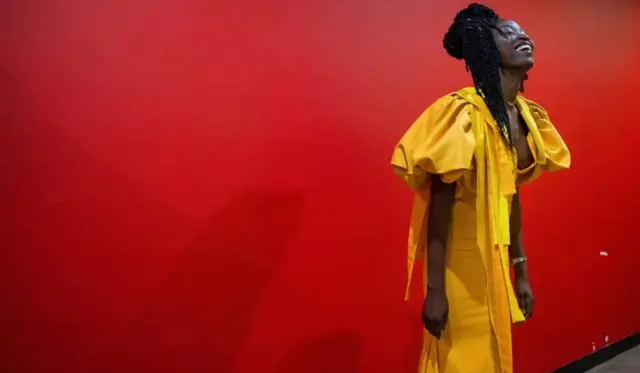 Image source, IHSAAN HAFFEJEE/REUTERS
Image source, IHSAAN HAFFEJEE/REUTERS Dorcas Wangira
Dorcas Wangira
BBC News, Nairobi
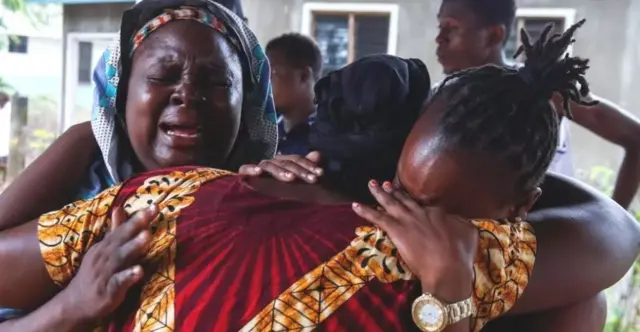 Image source, Reuters
Image source, ReutersRelatives of the victims have been grieving
Kenyan police have exhumed the highest number of bodies in a single day from a forest in Kilifi, Kenya’s coastal region, which is linked to a controversial doomsday cult.
Twenty-nine more bodies were exhumed on Friday.
So far, 179 people, believed to be members of the Good News International Church, are confirmed to have died either of starvation, strangulation or blunt force trauma.
The more forensic teams dig, the more bodies they find. One shallow grave had 12 bodies huddled together.
The Kenya Red Cross says 609 people who are reported to be members of the doomsday cult allegedly led by Paul Mackenzie are still missing.
Pastor Mackenzie said he closed down his church four years ago after nearly two decades of operation.
But the BBC has uncovered hundreds of his sermons still available online, some of which appear to have been recorded after this date.
In an interview with Kenya's Daily Nation newspaper a few weeks ago, Pastor Mackenzie also denied he had forced his followers to fast.
The number of missing cult members has tripled since the extensive rescue and exhumation operation began in late April.
Kenya’s Attorney General has admitted that the state failed to protect the alleged victims.
The cult leader is still in police custody. He is yet to be charged.
Read more about Paul Mackenzie here.
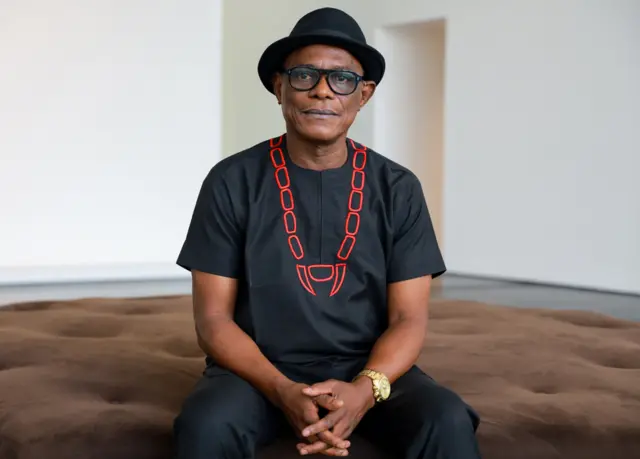 Image source, Sarah Hobson
Image source, Sarah HobsonSamuel Fosso, one of Africa's most eminent photographers, has won the prestigious Deutsche Börse Photography Foundation Prize for 2023, at a special ceremony in London.
Described as "a man of 1,000 faces", the Cameroonian-born artist has specialised in self-portraiture and performative photography since starting out in the 1970s - and his works now appear in renowned galleries all over the world.
He was awarded the £30,000 ($37,000) prize for his recent retrospective exhibition at the Maison Européenne de la Photographie gallery in Paris, external.
Fosso, now 60, was raised in Nigeria, but fled during the Biafran war when his mother died and later settled with his uncle in the Central Africa Republic (CAR), where he began an apprenticeship at a local photographic studio.
At the age of 13 in 1975, he branched out on his own opening his Studio Photo Nationale in the capital, Bangui. He started taking self-portraits using up exposures on his films to send to his grandmother in Nigeria.
His initial aim was to show he was alive and well, but his interest in exploring the genre grew - and he experimented with new techniques and poses.
"Winning this prestigious prize, recognised as one of the most important in the field of photography, means that my work is recognised by the artistic community," Fosso said.
"This recognition is very important to me. I feel a lot of joy and pride."
One of his most famous images, from his series from the 1970s, is of him sporting bell bottom trousers inspired by West African fashion and images seen in American magazines:
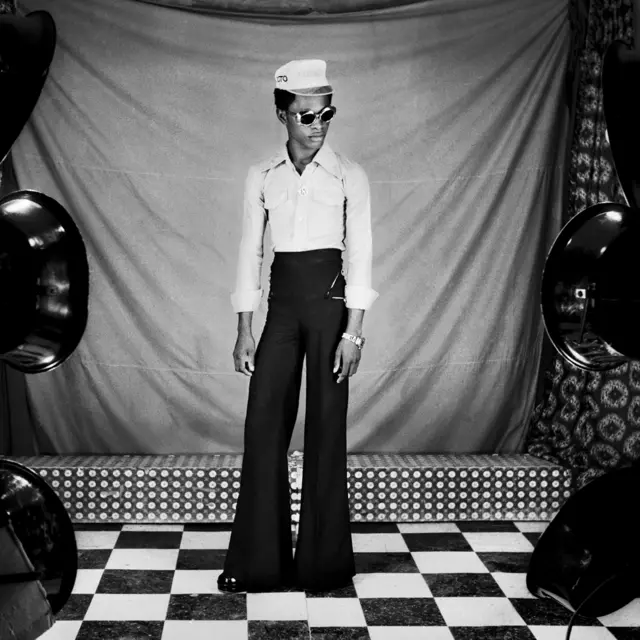 Image source, Samuel Fosso
Image source, Samuel FossoSamuel Fosso, Autoportrait, from the series 70s Lifestyle, 1976
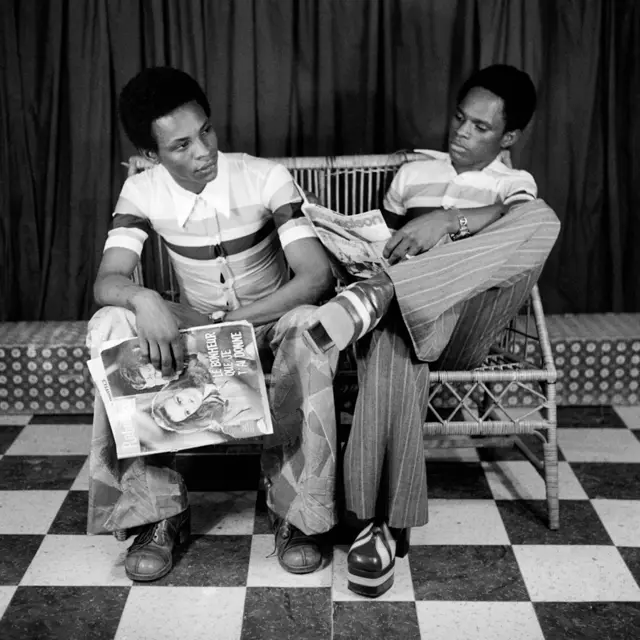 Image source, Samuel Fosso
Image source, Samuel FossoSamuel Fosso, from the series 70s Lifestyle, 1975-78
In his series African Spirits from 2008, Fosso posed as 14 iconic figures of the US Civil Rights Movement:
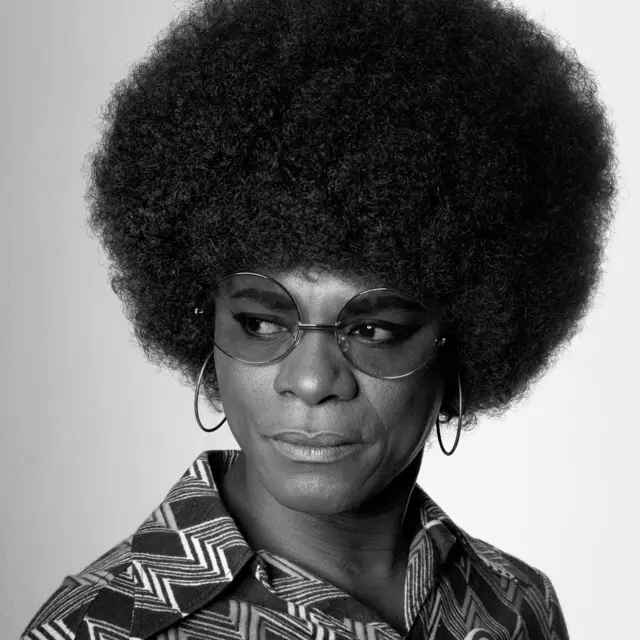 Image source, Samuel Fosso
Image source, Samuel FossoSamuel Fosso, Self-Portrait (Angela Davis) from the series African Spirits, 2008
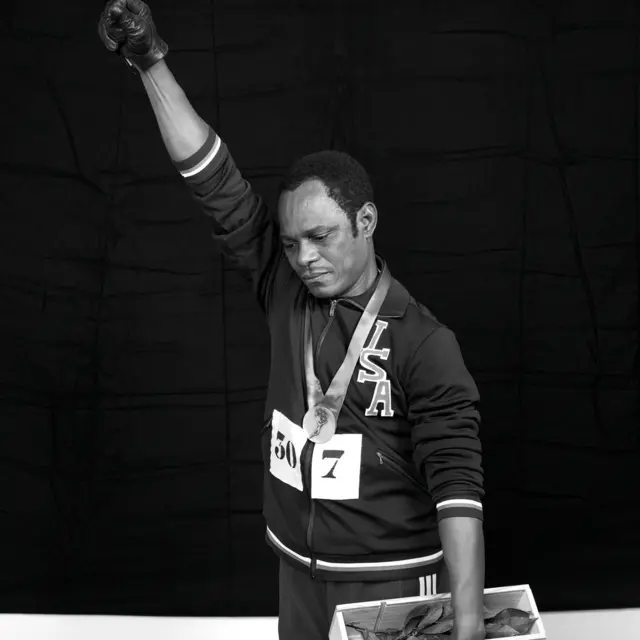 Image source, Samuel Fosso
Image source, Samuel FossoSamuel Fosso, Self-Portrait (Tommie Smith) from the series African Spirits, 2008
In his Allonzenfans series from 2013, he reflected on how France conscripted men from its West African colonies to fight in World War One and World War Two:
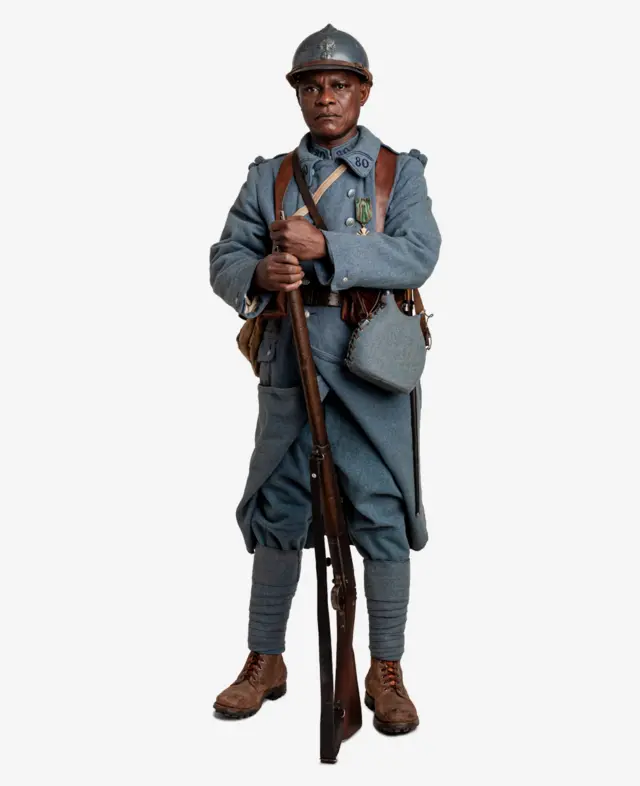 Image source, Samuel Fosso
Image source, Samuel Fosso“I want to show the black man’s relationship to the power that oppresses him,” Samuel Fosso
All the shortlisted artists for the Deutsche Börse photography prize, which included Bieke Depoorter, Arthur Jafa and Frida Orupabo, will be on show at The Photographers' Gallery in London until 11 June 2023.
A deal between the warring factions in Sudan to protect civilian lives will not "stop the fighting", Sudanese political analyst Kholood Khair has told the BBC's Focus on Africa radio programme.
"This is just an example that the two sides can sit together" which is "significant" but does not change the fact that both sides are still fighting, she said.
She added that in her view neither side has shown "any respect" for human life or humanitarian access.
Earlier we reported that both sides had agreed to allow safe passage for people leaving battle zones, protect relief workers and not to use civilians as human shields, after US- and Saudi-led talks in Saudi Arabia.
So far the fighting in Sudan, which broke out last month, has killed hundreds and led to thousands more to flee their homes.
 DJ Edu
DJ Edu
Presenter of This Is Africa on BBC World Service
 Image source, themagiciansgallery
Image source, themagiciansgalleryEXQ has been in the music industry for more than two decades
Zimbabwean rapper EXQ has told the BBC that he has big dreams of performing at the O2, after his first sold out show in the UK.
"Shout out to everyone who came, it was beautiful. My dream is to perform for a bigger crowd, I want more, I want to be in O2 with maybe five thousand, ten thousand."
EXQ has been in the music industry for 21 years, starting off in the early 2000s doing urban grooves, a genre which incorporated urban dancehall, urban jazz, and Zimbabwe’s urban Sungura music.
But EXQ’s sound has evolved with time and he’s still dropping songs, like his most recent collaboration with Zimbabwean singer Takura, One More Time.
But it’s not his ability to adapt and change that EXQ cites as the reason for his continued success in the industry, he also points to something more practical.
“You have to invest money also. I think when you do that you really work hard so that you come up with a good product," he said.
EXQ has also benefitted from some wise advice from Zimbabwean legend Oliver Mtukudzi. In 2007 they released a song together – Pane Rudo.
“He told me: 'When you do have shows make sure you perform very well 'cause everybody’s watching.'”
You can hear EXQ on This is Africa this Saturday, on BBC World Service radio and partner stations across Africa, as well as online here.